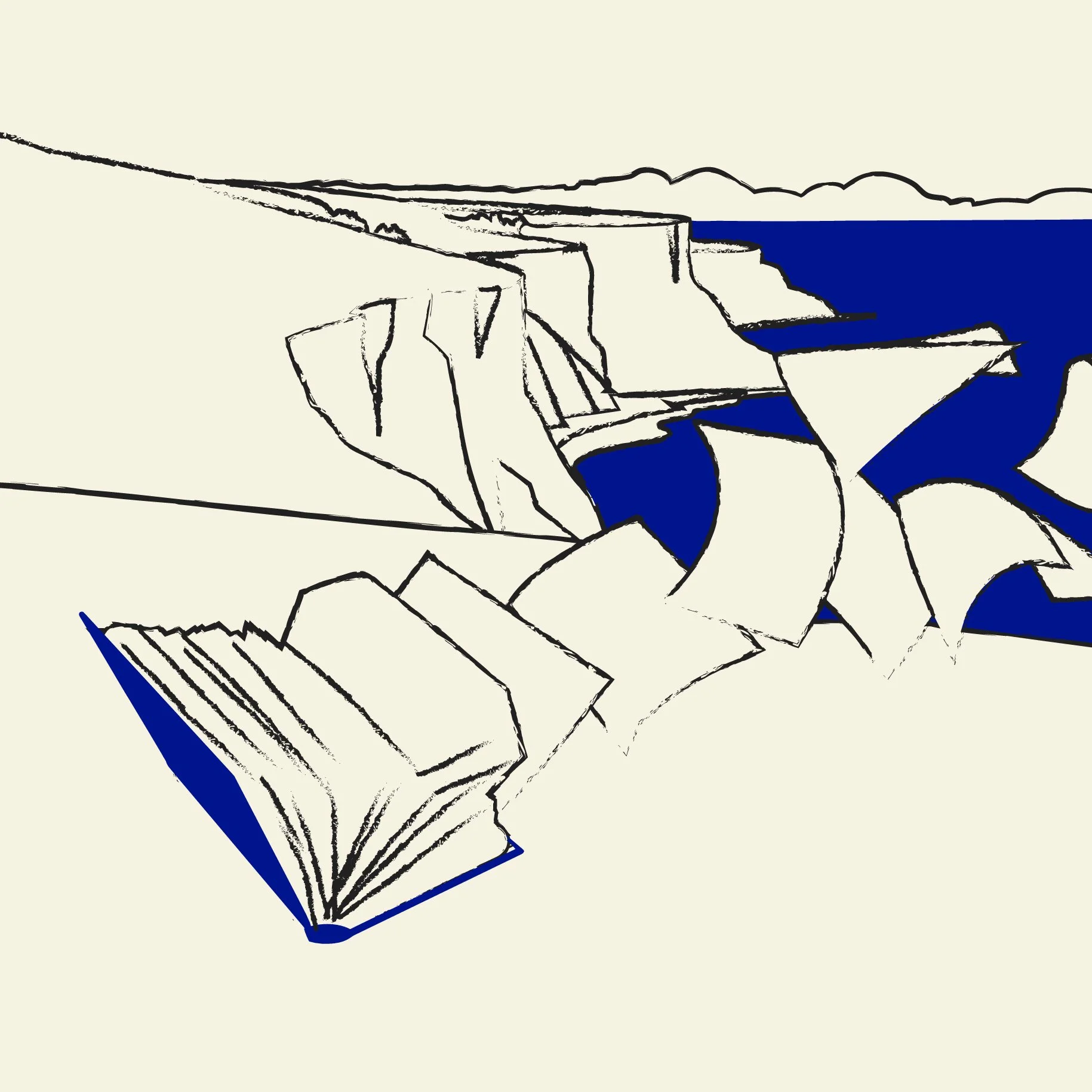The Sound of Cymraeg
OCTOBER 2, 2025
The Reporter’s Notebook is our monthly interview series with Dial contributors. To receive these conversations directly in your inbox, sign up for our newsletter.
✺
A conversation with Robert Minhinnick about translating the language of Wales.
In Bridgend, Wales, where Robert Minhinnick was born and raised, few locals would call themselves fluent in the country’s native Cymraeg, or Welsh. To the extent Welsh children know the language, it usually comes from limited learning in school and whichever words their families are able to pass down. Alcatraz, Robert’s new collection of English-translated Welsh poetry, brings forward Welsh culture and highlights the diverse thoughts and feelings of local writers whose language is increasingly vulnerable to extinction.
Last month, The Dial published three poems from Alcatraz. They describe both the beauty of finding your fluency in a threatened language and the pain of watching that language disappear.
Dial intern Lucas Frisancho spoke with Minhinnick about his experience from within the broad movement to protect and promote Welsh culture, as well as what might be lost or gained when working through translation.
THE DIAL: In the introduction of the poetry collection Alcatraz, you reflect on the limited Welsh, known as Cymraeg in that language, passed down from your family. How would you describe your relationship to the language as you were growing up? How is it taught in school?
ROBERT MINHINNICK: I was 13 when I stopped Welsh in school. With hindsight a stupid move. At that age, I suspected I wanted to be some sort of writer, and song lyrics suggested themselves. But not in any language apart from English. I was unaware of how much — or how little — the Welsh language was a part of my life and inheritance. It was natural for me to wish to write, as my father had published short stories, influenced by English and US authors. Ours was a literate household. But songs were the thing, and the 1960s were exploding.
THE DIAL: You are an acclaimed poet, essayist and novelist in your own right. What prompted you to pursue fluency and begin translating other works from Welsh into English?
RM: I was curious. Writers should be. I discovered the Welsh language surrounded me, in names of houses, streets, farms, fragments of conversation, family history, individual words, memories and then a TV channel. Today I study the nomenclature of very local maps of where I live and am enthralled.
My introduction that begins the book Alcatraz, from which the poems are excerpted, has a poem about my maternal grandmother working as a barmaid, and serving drinks to iron foundrymen. For that she had to be trilingual — English, Cymraeg, Spanish. But that culture, including the iron works, is long gone. As is the natural vocabulary I possessed as a young child.
Sound is essential to Cymraeg poetry. A great deal more so than ‘mainstream’ English or American, but I always place emphases on sound in my own writing, poetry or prose. I think I always have. Musicality is vital in writing. That’s my lesson from Cymraeg. Also, in my translations, my own imagination and experience play a crucial role. In Iestyn Tyne and Sian Northey’s poems about the coastline in north Wales I draw on my very local south Wales observations of the sea.
THE DIAL: Do the sounds of Welsh shape how you work in English? Is there a melody that is lost?
RM: Of course. But maybe something is gained. My translation is not copying but an artistic act. The translated poem must have its own identity. Why would I bother otherwise?
THE DIAL: All three poems featured in The Dial touch on the endangerment of the Welsh language. How do you experience this endangerment as a writer and translator?
RM: Certainly ‘local’ Welsh is imperiled, where it still exists. Much reduced or vanished in many places. All part of our great age of extinctions. On the other hand, the language is thriving in its literary and music scenes, and the growth of schooling in Cymraeg. Thus, reasons for optimism, despite dangerous Welsh politics. There will be an election for the Welsh parliament (Senedd) in May 2026. Both Plaid Cymru (the Party of Wales) seeking independence, and Reform UK, opposed to independence and anti-immigration and renewable energy, are vying for power.
THE DIAL: Is there a strong revival movement for Welsh? How do you see your role in this movement?
RM: I’m not part of a ‘Welsh language movement’ but am a member of the political party asking for an independent Wales. For many years I have been part of an environmental movement, which for me contains culture and language. I’m co-founder of the charity Sustainable Wales/Cymru Gynaliadwy and we try to pursue a ‘cultural’ agenda. We make films about climate change, with emphasis on the Welsh coast, and also local generation of energy. Because ‘sustainability’ is everything to do with ‘culture,’ which is life itself for many. They cannot exist apart.
LUCAS FRISANCHO is a Peruvian American writer from Chicago. He has served as a reporting intern at Next City, a solutions journal covering urban inequality. Lucas has also written for The Chicago Maroon, the student-run newspaper at the University of Chicago, where he currently studies Political Science and Cinema & Media Studies.





